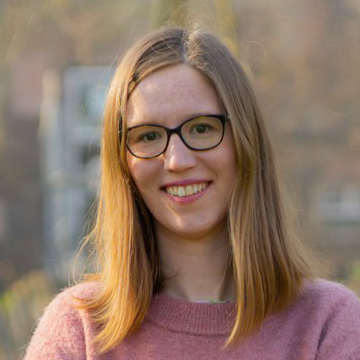 \
&
Contact us
\
&
Contact us
 \
&
Contact us
\
&
Contact us
Published on | 3 years ago
Last updated on | 4 months ago

sarah.stroobants@fwo.be
With this pilot the Commission wants to tackle concerns that the evaluation process could be perceived as biased towards well-known organisations in countries with better performing Research and Innovation systems. The Commission indicates that a recent independent study has not revealed such a bias.
The pilot aims to identify whether the implementation of blind evaluation within the legal requirements and operational context creates any difficulties. If this is not the case, it might lead to a modified approach, with a greater use of blind evaluations, which could effectively mitigate the risk of real, potential or perceived reputational bias.
The recording of a Commission information webinar on the topic is available here. The slides used during this webinar can be found in attachment.
In the Horizon Europe Work Programme 2025,where provided for in the specific call/topic conditions, first-stage proposals of the two-stage call topics will be evaluated blindly. Note that in the Horizon Europe Work Programme 2023-2024, all first-stage proposals of two-stage call topics have also been evaluated blindly (except one call for Widening).
The concept of blind evaluation requires that experts evaluators do not know the consortium structure and the applicant(s) involved. To accomplish this, the following safeguards are in place:
Thus, applicants submitting a proposal under the blind evaluation pilot must take into account a new admissibility criterion: they must not disclose their organisation names, acronyms, logos nor names of personnel in the proposal abstract and Part B of their first-stage application (see General Annexes A &E). If identification as listed here above is mentioned by applicants in the proposal’s Part B, the proposal will be inadmissible.
The application form for stage 1 applications for topics under the blind evaluation pilot, includes a dedicated page with guidance for blind evaluations and annotations in the template text to guide applicants. You can consult the blind evaluation guidance in the 'Standard application form (HE RIA IA Stage 1 BLIND)' under the reference documents on the Funding & Tenders portal. Important reminder: The last updated template of the application form needs to be downloaded directly from the submission page in the funding & tender portal for each call.
The following extract from the dedicated page with guidance for blind evaluations provides concrete examples:
In the different sections of the application form, annotations have been added to remind applicants to pay special attention not to expose their identity. Herewith two examples (Excellence part):
It is important to keep in mind that stage 1 will only assess the excellence and impact criteria, whereas the quality of the partners and of the consortium composition (including relevant previous publications, achievements & projects of the consortium partners) will be assessed only in stage 2. More details about the two-stage submission procedure are available in this dedicated infosheet.
The legal basis for this pilot can be found in Article 28 of the Horizon Europe Regulation:
Article 28 Award criteria and selection
[…] 4. The Commission and other funding bodies shall take into account the possibility of a two-stage submission and evaluation procedure and where appropriate, anonymised proposals may be evaluated during the first stage of evaluation based on one or more of the award criteria referred to in paragraph 1.
We offer news and event updates, covering all domains and topics of Horizon Europe, Digital Europe & EDF (and occasionally, for ongoing projects, Horizon 2020).
Stay informed about what matters to you.
By signing up, you can opt in for e-mail notifications and get access to
a personalised dashboard that groups all news updates and event announcements in your domain(s).
Only for stakeholders located in Flanders
The ROOT project obtained funding under Horizon 2020 topic ‘EGNSS applications fostering societal resilience and protecting the environment’. The project, which ran from November 2020 to July 2022, aimed to demonstrate the benefit of Galileo OSNMA signal to increase the robustness of critical telecom infrastructures.
The Flanders-based company Septentrio contributed substantially to completing this objective together with the other ROOT partners. The results of the project partially close a gap in the security of telecommunication networks dependent on satellite-derived time, with indirect benefits in curbing illegal attempts to disrupt network services.